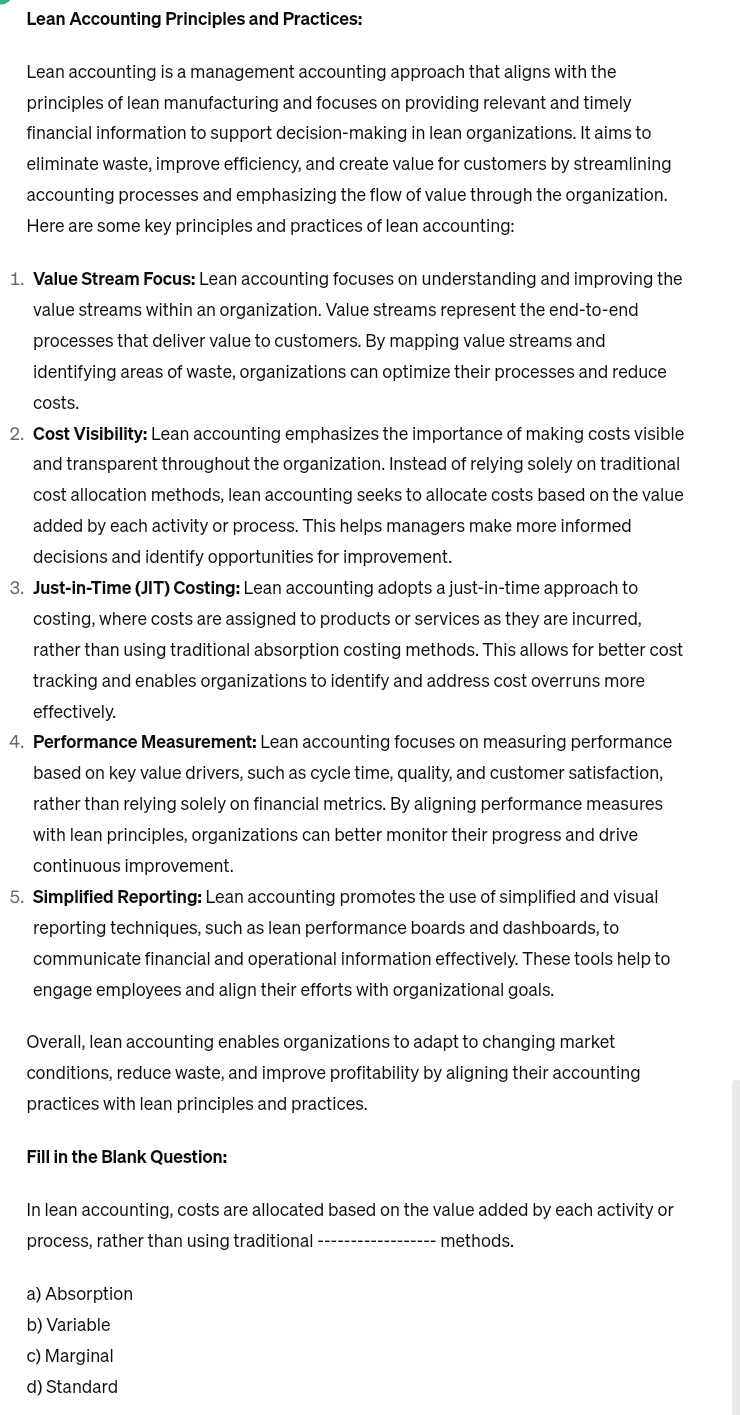Answered step by step
Verified Expert Solution
Question
1 Approved Answer
Lean Accounting Principles and Practices: Lean accounting is a management accounting approach that aligns with the principles of lean manufacturing and focuses on providing relevant
Lean Accounting Principles and Practices:
Lean accounting is a management accounting approach that aligns with the principles of lean manufacturing and focuses on providing relevant and timely financial information to support decisionmaking in lean organizations. It aims to eliminate waste, improve efficiency, and create value for customers by streamlining accounting processes and emphasizing the flow of value through the organization. Here are some key principles and practices of lean accounting:
Value Stream Focus: Lean accounting focuses on understanding and improving the value streams within an organization. Value streams represent the endtoend processes that deliver value to customers. By mapping value streams and identifying areas of waste, organizations can optimize their processes and reduce costs.
Cost Visibility: Lean accounting emphasizes the importance of making costs visible and transparent throughout the organization. Instead of relying solely on traditional cost allocation methods, lean accounting seeks to allocate costs based on the value added by each activity or process. This helps managers make more informed decisions and identify opportunities for improvement.
JustinTime JIT Costing: Lean accounting adopts a justintime approach to costing, where costs are assigned to products or services as they are incurred, rather than using traditional absorption costing methods. This allows for better cost tracking and enables organizations to identify and address cost overruns more effectively.
Performance Measurement: Lean accounting focuses on measuring performance based on key value drivers, such as cycle time, quality, and customer satisfaction, rather than relying solely on financial metrics. By aligning performance measures with lean principles, organizations can better monitor their progress and drive continuous improvement.
Simplified Reporting: Lean accounting promotes the use of simplified and visual reporting techniques, such as lean performance boards and dashboards, to communicate financial and operational information effectively. These tools help to engage employees and align their efforts with organizational goals.
Overall, lean accounting enables organizations to adapt to changing market conditions, reduce waste, and improve profitability by aligning their accounting practices with lean principles and practices.
Fill in the Blank Question:
In lean accounting, costs are allocated based on the value added by each activity or process, rather than using traditional methods.
a Absorption
b Variable
c Marginal
d Standard

Step by Step Solution
There are 3 Steps involved in it
Step: 1

Get Instant Access to Expert-Tailored Solutions
See step-by-step solutions with expert insights and AI powered tools for academic success
Step: 2

Step: 3

Ace Your Homework with AI
Get the answers you need in no time with our AI-driven, step-by-step assistance
Get Started


